Summary
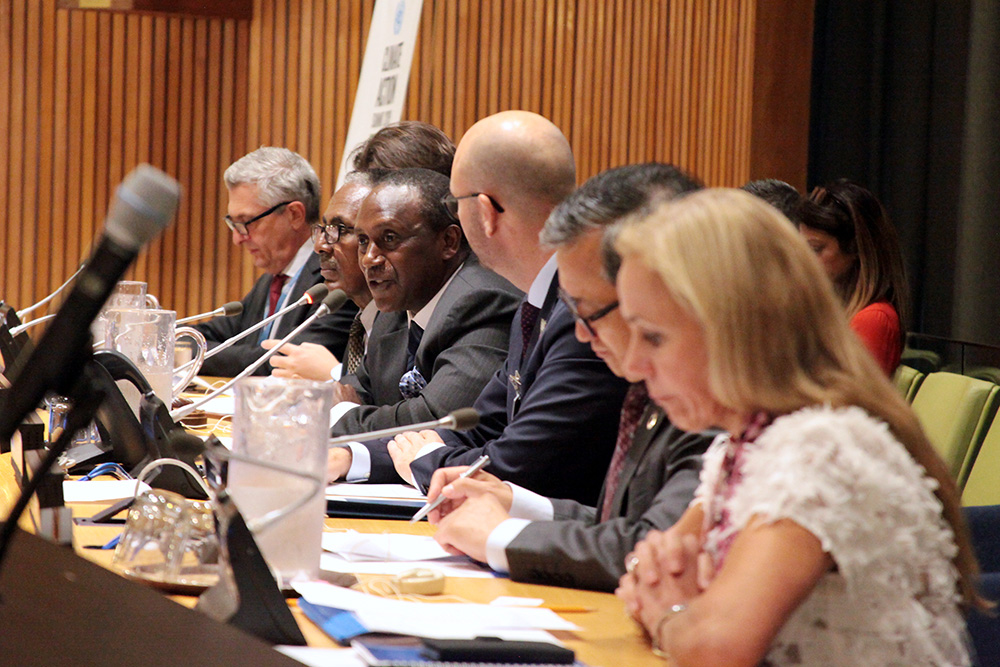
Highlights
The high-level event on the energy transition track of the UN Secretary-General’s Climate Action Summit highlighted new financial commitments from the Netherlands, Norway, Denmark, and France; the establishment of a USD 500 million Clean Cooking Fund by the World Bank; and stories from recipient countries, donors, and organizations. Session 1: Energy Fueling DevelopmentRasmus Prehn, Minister for Development Cooperation, Denmark, opened the session by highlighting the need for public-private collaboration to support the energy transition. He said that Denmark will reduce its CO2 emissions by 70% by 2030 and will become carbon neutral by 2050. He also announced that Denmark will double its contribution to the Energy Sector Management Assistance Programme (ESMAP) of the World Bank, with a focus on clean cooking.Fekadu Beyene, Commissioner, Environment, Forest, and Climate Change Commission, Ethiopia, highlighted the role of the energy transition track within the Secretary-General’s Climate Action Summit in promoting and accelerating the transition to low-carbon, climate-resilient economies.Rachel Kyte, Special Representative of the UN Secretary-General for Sustainable Energy for All and CEO SEforALL, emphasized that “the price of leadership has gone up,” due to the growing movement of increasingly environmentally-conscious youth. Given that the politicians will in the future come to depend on votes from today’s young people, she said political leaders will have to do more to tackle climate change.Patricia Fuller, Canada’s Ambassador for Climate Change, said that intermittency presents a challenge for scaling up renewable energy, as the wind, for example, does not always blow and the sun does not always shine. Noting that many governments would like to set more ambitious renewable energy targets, she underscored the need for more investment in energy storage to address the intermittency challenge. Catherine Bremner, Department for Business, Energy and Industrial Strategy (BEIS), UK, said that scaling up renewables at an accelerated rate “will be key” if the SDGs and the Paris Agreement are to be achieved. Adding that energy storage is an essential enabler for energy transition and scaling up, including through replacing diesel engines with batteries, she expressed UK’s support for the World Bank’s Battery Storage program.Jens Frolich Holte, State Secretary, Norway, emphasized the potential of hydropower energy, and thus of water storage as energy storage. Noting that Norway would like to make storage “the most disruptive technology” in the energy sector, he announced that the government will scale up its support to ESMAP and contribute to the World Bank’s newly launched Clean Cooking Fund.Hussain Rasheed Hassan, Minister of Environment, Maldives, announced plans to increase the share of renewables in the country’s energy mix from 6% to 70% by 2030, even though that is not currently Maldives’ nationally determined contribution (NDC) target. He also released the Executive Summary of the report, the “Energy Storage Roadmap for the Maldives”.Ingolf Dietrich, Federal Ministry of Economic Cooperation and Development (BMZ), Germany, welcomed the World Bank’s Energy Storage Partnership and said Germany is currently considering increasing its financial support to the initiative.Jan-Willem van de Ven, the European Bank for Reconstruction and Development (EBRD), presented on the Bank’s support to countries for low-carbon development pathways and announced an event on energy storage on 5 November 2019, to take place in London, UK. Mechthild Worsdorfer, Director, International Energy Agency (IEA), announced the launch of a new IEA report on 21 September that shows that there will be a nearly 12% growth in renewables in 2019. In order to achieve the energy transition needed by 2030, she underscored the need to upscale battery use by 40 times current rates.R.P. Gupta, Additional Secretary, Niti Aayog, India, said the share of renewable energy in India’s electricity mix is set to increase to 53% by 2030 and highlighted the need for concessional financing to enable India’s transition to renewables. Brigitte Collet, Ambassador for Climate Negotiations, France, announced that France will commit EUR 50 million for a partnership with the EU Regional Facility for Development in Transition, which will allow the financing of projects in Africa through the African Trade Insurance Agency, and could mobilize an additional EUR 3 billion in investments. Kitty van der Heijden, Vice-Minister for International Cooperation, Netherlands, announced a USD 40 million donation to the World Bank’s Solar Risk Mitigation Initiative and USD 20 million to the World Bank’s Clean Cooking Fund.Francesco la Camera, Director General, International Renewable Energy Agency (IRENA), highlighted the need for risk mitigation to promote increased investments in renewable energy at the institutional, transactional, and project levels, including through instituting policies conducive to attracting investment from the private sector.Aparna Subramani, representing the International Solar Alliance (ISA), said that the Alliance has 79 signatory countries, has supported 73 countries in developing their solar energy roadmaps, and will support South-South partnerships. Mustapha Bakkoury, Chairman of the board, Moroccan Agency for Solar Energy (MASEN), underscored the need for a long term vision for the energy sector. Liang Xuming, GEIDCO, called for establishing multi-stakeholder platforms at the UN level to promote Africa’s energy development and coordinating mechanisms for clean energy projects.Session 2: Energy Fueling People Clean Cooking, Energy and HealthKandeh Yumkella, Rapporteur, Clean Cooking, Energy and Health, said the international community has done well on electrification but has not moved the needle on clean cooking, “which is the silent tsunami killing more people than HIV, malaria, and tuberculosis combined.”Filippo Grandi, High Commissioner, UN Refugee Agency (UNHCR), noted that the vast majority of world’s 71 million refugees and displaced people do not have access to sustainable and clean cooking. Approximately 85% of refugees only have access to firewood, he said, which has health and gender violence risks for the women who go to gather the wood. He called for providing refugees with access to clean cooking. Zhenmin Liu, UN Under-Secretary-General, the UN Department of Economic and Social Affairs (DESA), welcomed the World Bank’s proposed Clean Cooking Fund; highlighted DESA’s partnership with WHO, UNDP and the World Bank in the creation HEPA; and expressed strong support for the proposed High-Level Coalition of Leaders for Clean Cooking, Energy and Health to address the clean cooking access gap. Samira Ramadan Bawumia, Second Lady of Ghana, emphasized that the lack of clean cooking is a problem that affects mostly Africa and South Asia and called for supporting developing countries’ access to clean cooking facilities. Amina Moumouni, Minister of Energy, Niger, highlighted that the lack of access to affordable energy solutions has important health and environmental risks as people rely on firewood, which causes deforestation and thus worsens the country’s resilience to climate change.Irene Margaret Nafuna-Muloni, Minister of Energy, Uganda, presented national programs to advance the use of biogas and liquefied petroleum gas (LPG), thanking the World Bank for its support in advancing clean cooking. Matthew Nkhuwa, Minister for Energy and Water Development, Zambia, highlighted that Zambia needs USD 3.5 million for the development of biogas projects that promote clean cooking. Naoko Yamamoto, Assistant Director General, WHO, announced the establishment of HEPA together with UNDP, DESA, and World Bank.Mourad Wahba, Associate Administrator, UNDP, noted that the international community has now “the right confluence of factors” to promote clean cooking: the need on the ground; support from multilateral development banks; political leadership; and a mandate from the UN.Dymphna Van Der Lans, CEO, Clean Cooking Alliance, highlighted that the World Bank’s Clean Cooking Fund will need to disperse the money to those businesses that can scale.Edwin Huizing, Executive Director, HIVOS, emphasized that realizing universal access to clean cooking will reduce CO2 emissions by 1 gigaton per year.Sheila Oparaocha, International Coordinator, Energia, called for gender approaches to be integrated into financing programs for clean cooking. Kimball Chen, Chairman, Global LPG Partnership, said “the evidence is clear” that LPG is an urgent solution to indoor air pollution, gender inequality, and deforestation. Helena Valdes, Head, Climate and Clean Air Coalition, said that black carbon is the hottest particulate matter element and thus relates not only to clean cooking but also to achieving SDG 13 (climate change). She said that some financing for combating climate change could also be used to promote clean cooking and added that the international community could reduce global warming by 0.5 C by addressing the issue of household energy and clean cooking. Ed Brown, Coordinator, Modern Energy Cooking Services (MECS) Program, called for investing both in new green technologies, but also in the public sector and in the companies that need support to adopt these new technologies. Moderator Yumkella summarized some of the key points participants raised during the event, including:
IISD Reporting Services, through its ENB+ meeting coverage, provided web coverage from the Energy Transition Track High-Level Event.
Photos by the UN Department of Economic and Social Affairs (UNDESA)
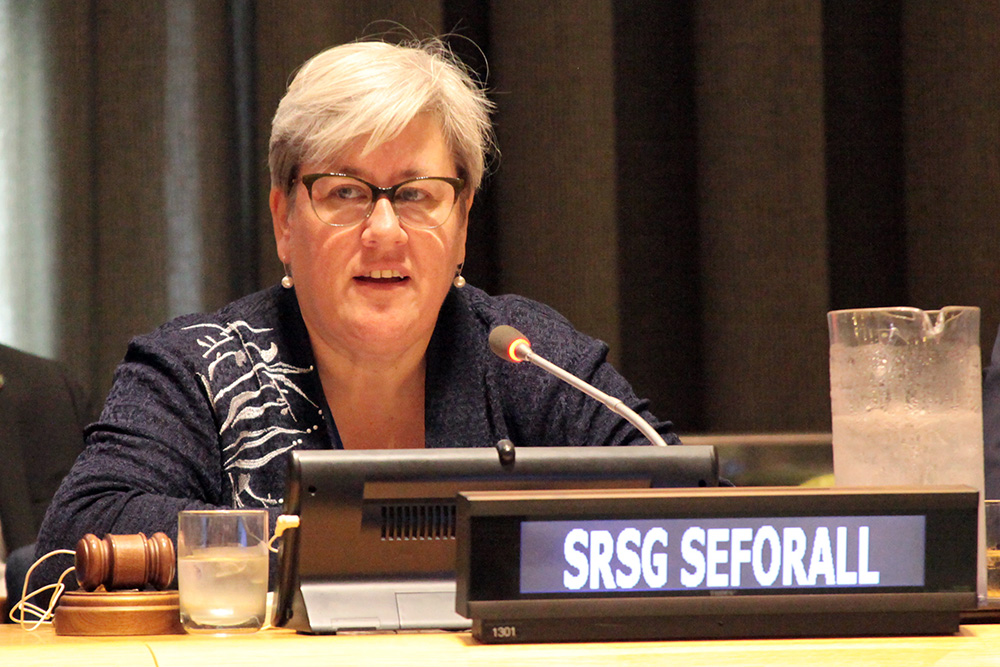
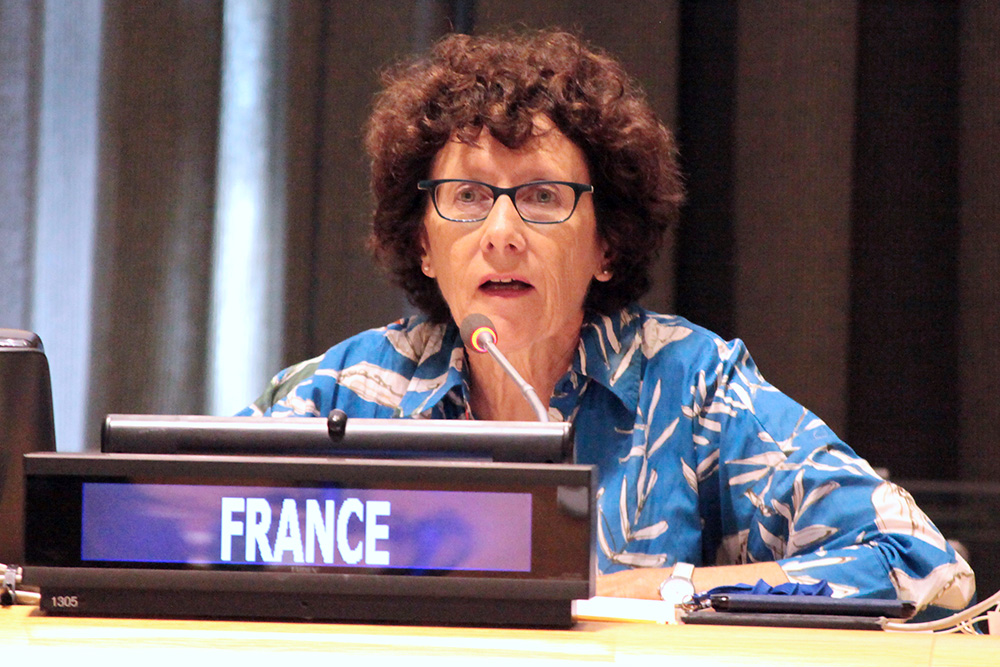
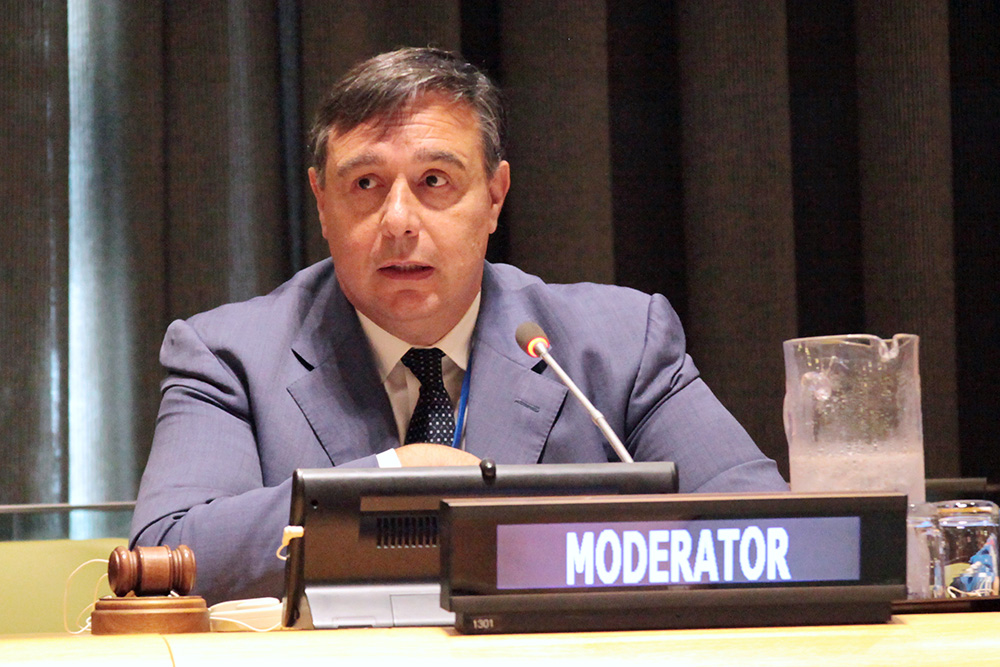
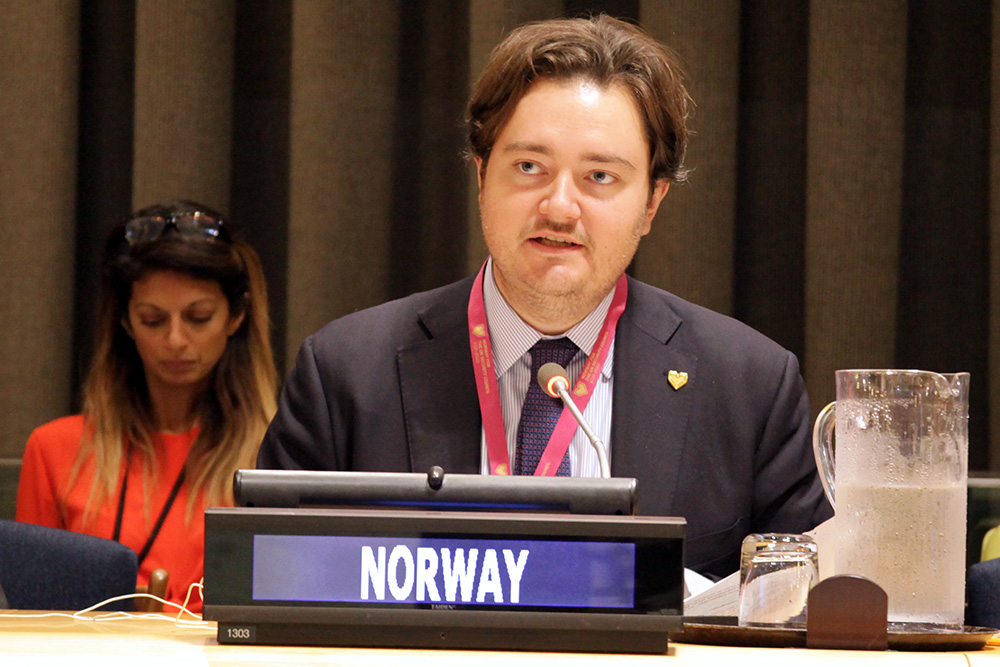
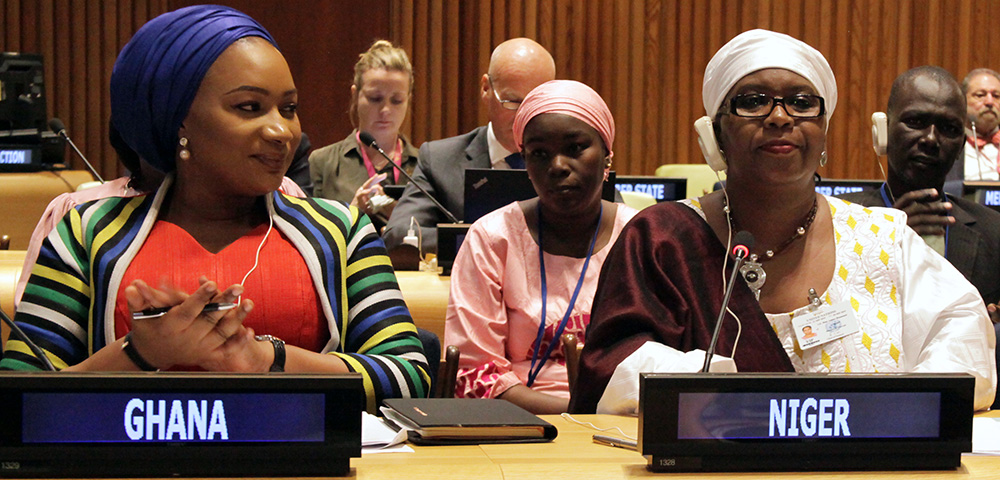
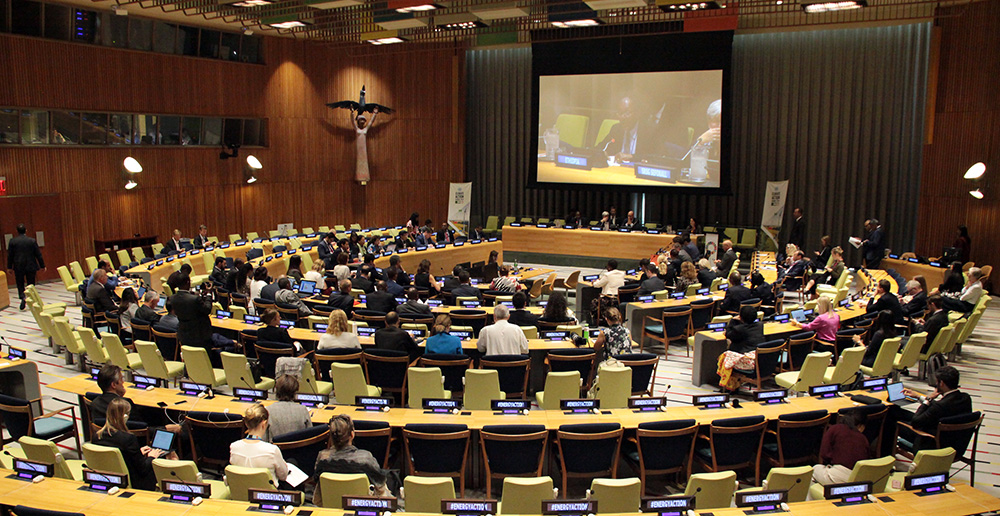
CONTACT
Minoru Takada | takada@un.org
MORE INFORMATION
https://indd.adobe.com/view/46533ac9-32e4-44b0-a8e9-4302e1f4babe